H2020 Projects
ACCORDION, defining an advanced edge computing platform.
ACCORDION H2020 is a cloud and edge computing project that seeks to bring together efforts in the field of new technologies to create a symbiotic network that will address the future requirements of society in the area of large-scale computing.
The biggest challenge for the European large-scale computing environment is the potential remoteness of its computing pools, which means that any collaboration faces considerable latency that hinders the viability of a symbiotic relationship. As part of this project, a European Edge Computing Platform will be developed;


At Plexus Tech we aim to develop an analytics platform where visitor location data is managed locally without being sent to the cloud in order to have faster decision making. As we are responsible for the use case "Intelligent Geolocation Solutions”, we promote the evolution of our TRAQUS and ANBLICK products on the Edge Computing platform.
The project brings together a total of twelve organisations (companies, universities and research centres) from Germany, Poland, Greece, Finland, Italy and Spain. The key to the project therefore lies in the coordination of the different players, whether they are local organisations and infrastructures or continent-wide.

“Smart spatial applications for #advanced digital marketing", is the video of Plexus Tech's use case for ACCORDION H2020.
We use our proprietary digital signage product ANBLICK, offering advertising that adapts to the user in real time.
CHARITY, building an immersive communication solution for holography and AR/VR/XR applications.

The European project CHARITY aims to channel the benefits of cloud computing, edge computing and virtual/augmented reality. This combination of low and high latency technologies permits the development of new highly interactive and collaborative experiences, products and services.
CHARITY proposes an innovative cloud architecture that, combined with Edge solutions, is intended to overcome the technical limitations that currently exist in technologies like virtual reality, augmented reality and holography. This will allow progress to be made on virtual and holographic assistants for use in meetings, medical training and education, as well as in collaborative games, aeronautical simulations and holographic telepresence, among other scenarios.
The project is driven by a consortium of fifteen companies and research centres from nine EU countries. The planned duration is 36 months, from January 2021 to December 2023.

In particular, Plexus Tech focuses on optimising data throughput and decreasing latency to improve the incorporation of these technologies into the proposed use cases.
It also leads the communication and dissemination of the project in order to publicise its results and facilitate its future commercialisation.

The Plexus Tech team leads the architecture and integration areas of the project, developing the system required for proper functioning in environments such as digital assistants for tourism and healthcare, holographic telepresence, AR/VR training systems, etc.

Objectives of the CHARITY project
- To bring about the autonomy of networking, computing and storage resources for future technological applications of this type in Europe.
- To promote the creation of services and applications for collaboration between the different projects.
- To create a European technological ecosystem that benefits society as a whole and makes it possible to compete abroad.
Based on user requirements, applications of these technologies have been designed to meet the major challenges of virtual and augmented reality. This will validate the technology for a multitude of variants and allows the technological innovations in the CHARITY project to be demonstrated.
Some examples are virtual reality or holographic concerts, holographic business meetings, virtual reality training for healthcare staff and virtual reality guided tours of various places of interest.


